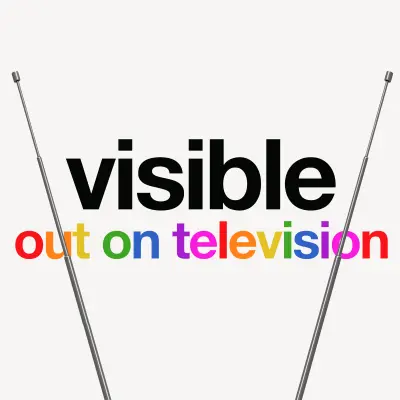Apple TV+'s Visible: Out on Television is genuinely astonishing in its in-depth look at TV's LGBTQ history
-

The five-part docuseries from director Ryan White is "a hugely ambitious project, and it takes its mission seriously, featuring a genuinely astonishing breadth of research and dozens of interviews with LGBTQ+ actors (including executive producers Wilson Cruz and Wanda Sykes), writers, allies and activists," says Caroline Framke. "It’s fascinating and educational to see archival footage from across decades of TV genres — and even moreso to understand just how much TV has been used both as a weapon and a balm to long-suffering wounds." Framke adds: "What makes Visible remarkable is this kind of attention to detail and broader context, not to mention its obvious commitment to including queer voices as expert witnesses. Its in-depth study of a seemingly impossible subject to sum up is very impressive — and, I daresay, necessary. As LGBTQ+ representation multiples and improves, it’s become an easy line for bad faith bigots to declare that enough might just be enough, the culture war’s been won, they get it, queer people exist. But as Visible makes clear within just a few searing minutes, the current proliferation of queer content was hard-won over decades of invisibility, hostility and hardship. Now, as more and more people might understand what it means to be queer in America thanks to more and more representation thereof on television, it’s even more important to remember the obstacles and battles it took to get here, so as not to go backwards."
ALSO:
- Visible is so much more than a celebration of TV by TV: "A cynical way of looking at Visible might be as a celebration of TV by TV — a party thrown for a set of pictures while actual people are suffering and dying," says Inkoo Kang. "But the documentary quickly dispels such skepticism by reminding viewers that a potential 'weapon' like television — a nonstop stream of stories and spectacle (with their attendant points of view) with little to no barrier to access — can easily be repurposed into an empathy machine. Oprah Winfrey, one of the dozens of celebrities interviewed (along with writers and activists), says of the importance of representation, 'When you see images that are reflective of your own life, it's a reminder to you that your life matters.' And for queer people and possible allies who had few other LGBTQ reference points, especially before the Internet era, TV could be a lifeline. It's probably not a coincidence that Visible is arguably most fascinating in its earliest installments, which cover an era when television had fewer competitors for eyeballs, and thus enjoyed a corresponding level of influence."
- Visible made sure to include a diverse range of voices in the LGBTQ community: "The film-makers understand that, historically, television has been dominated by cisgendered white men, which skews the narrative, and they make every effort to correct for this," says Rebecca Nicholson. "Trans and gender-nonconforming contributors discuss their history. There is brilliant archive footage of Christine Jorgensen, one of the Americans to have sex-reassignment surgery, talking about her transition to a crowd of reporters in the 50s. A later episode discusses the erasure of bisexuality by way of Carrie in Sex and the City dismissively referring to it as 'just a layover on the way to Gaytown.' Empire, The Wire and Noah’s Ark are analyzed in terms of their portrayal of the experiences of black gay men. In one particularly moving segment of the series, (Wilson) Cruz reveals just how similar his own story was to that of his character in My So-Called Life."
- Visible's interviewee roster is broad and deep, and everyone brings something to the table, be it their personal story or cultural criticism
- Visible is often at its best when remembering those who lived in the shadows, like Paul Lynde of Hollywood Squares
- Director and executive producer Ryan White says Visible has been in the works for more than a decade: "We'd been trying to get this project off the ground long before the streaming platforms even really existed," he says. "Being LGBTQ myself, I knew how formative television was for me. I knew the opportunity to work with Apple was new in the game. And so I said, 'If you guys are willing to give me the leeway to try to make this as like a real documentary series and not a clip show that's rapid-firing through history, where we can take storylines or characters or actors, and give them a beginning, middle, and end – almost make this like a series of short films about TV moments – then maybe I'm the right person for it.'"
- White was particularly touched by Tim Gunn, who grew up in the McCarthy era in an anti-gay household: After only 30 minutes, White was "totally in love with Tim Gunn," says White, calling the former Project Runway mentor "so raw, so honest, still facing the trauma from his upbringing."
TOPICS: Visible: Out on Television, Ryan White, Tim Gunn, Wanda Sykes, Wilson Cruz, Documentaries, LGBTQ
More Visible: Out on Television on Primetimer:
